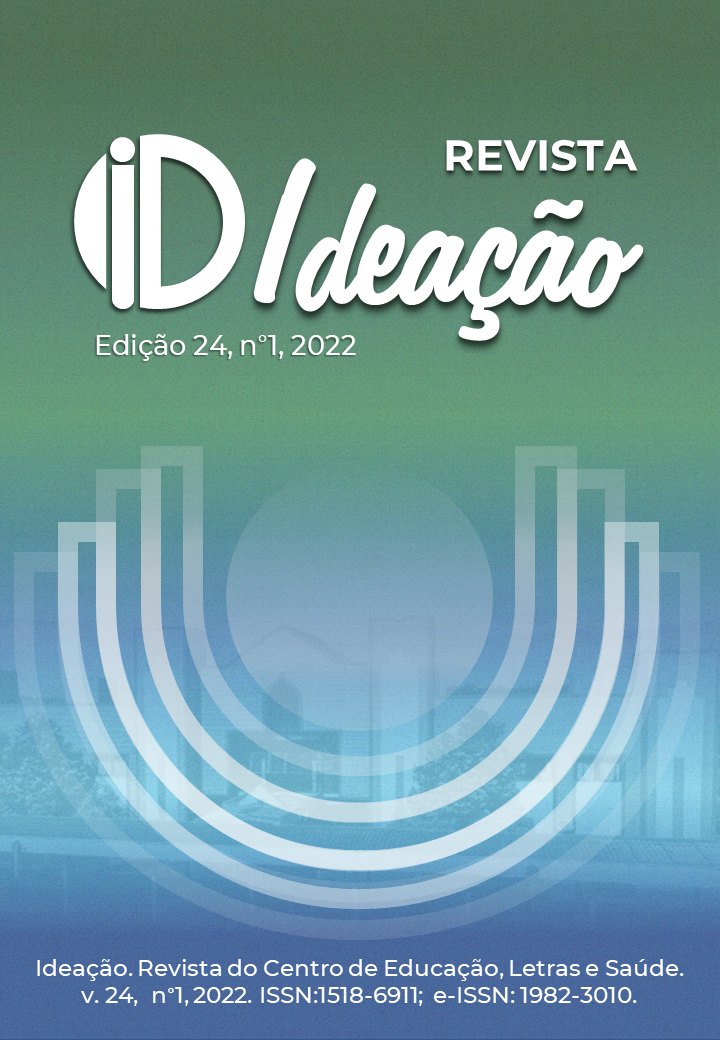Empreendedorismo na escola: uma possibilidade para projetar e realizar sonhos
DOI:
https://doi.org/10.48075/ri.v24i1.26995Palavras-chave:
Empreendedorismo, Educação Financeira, Cooperativa Mirim.Resumo
O empreendedorismo na escola é muito pertinente, pois pode articular situações reais e promover o protagonismo, bem como ativar um processo de ensino-aprendizagem por meio da interpretação e enfrentamento de acontecimentos que podem ocorrer dentro ou fora do ambiente escolar. Da mesma forma, pode possibilitar a idealização e a efetivação de determinadas aspirações, tanto individuais quanto coletivas. Portanto, neste artigo, apresentamos um projeto de empreendedorismo realizado em 2018 e 2019 na Escola Municipal Najla Barakat, em Foz do Iguaçu/PR, o qual envolveu vinte e dois estudantes do 5º ano do Ensino Fundamental, e que teve como propósito inicial contextualizar conceitos matemáticos com vistas à realidade vivenciada pelos envolvidos. Na ocasião, apresentamos atividades e desenvolvemos práticas educativas destacando a importância do consumo sustentável e, nesse sentido, compartilhamos conhecimentos sobre diferentes tipos de empreendimentos, além de laborar para a concretização de um sonho coletivo daquela turma, que visava realizar um passeio de formatura a um parque aquático. Teoricamente, o projeto embasou-se em referenciais que versam sobre o empreendedorismo escolar, tais como Dolabela (2003; 2006; 2008) e Dornelas (2014) e, metodologicamente, seguiu princípios do trabalho colaborativo, conforme define Ferreira (2006). Assim, com esse projeto, concluímos que contextualizar o ensino de conceitos matemáticos com a realidade vivenciada pelos estudantes torna a aprendizagem efetiva, e que proceder de modo empreendedor, cooperativo e colaborativo produz muitos resultados positivos, tais como valores, o respeito mútuo, o desenvolvimento da autonomia, da criatividade e de várias habilidades matemáticas.Downloads
Publicado
Como Citar
Edição
Seção
Licença
Copyright (c) 2022 Direitos partilhados conforme licença CC BY-NC-SA 4.0

Este trabalho está licenciado sob uma licença Creative Commons Attribution-NonCommercial-ShareAlike 4.0 International License.
Política para Periódicos de Acesso Livre
Autores que publicam nesta revista concordam com os seguintes termos:
1. Autores mantém os direitos autorais e concedem à revista o direito de primeira publicação, com o trabalho simultaneamente licenciado sob a Licença Creative Commons Attribution que permite o compartilhamento do trabalho com reconhecimento da autoria e publicação inicial nesta revista.
2. Autores têm autorização para assumir contratos adicionais separadamente, para distribuição não-exclusiva da versão do trabalho publicada nesta revista (ex.: publicar em repositório institucional ou como capítulo de livro), com reconhecimento de autoria e publicação inicial nesta revista.
3. Autores têm permissão e são estimulados a publicar e distribuir seu trabalho online (ex.: em repositórios institucionais ou na sua página pessoal) a qualquer ponto antes ou durante o processo editorial, já que isso pode gerar alterações produtivas, bem como aumentar o impacto e a citação do trabalho publicado (Veja O Efeito do Acesso Livre).
Licença Creative Commons
Esta obra está licenciada com uma Licença Creative Commons Atribuição-NãoComercial-CompartilhaIgual 4.0 Internacional, o que permite compartilhar, copiar, distribuir, exibir, reproduzir, a totalidade ou partes desde que não tenha objetivo comercial e sejam citados os autores e a fonte.


